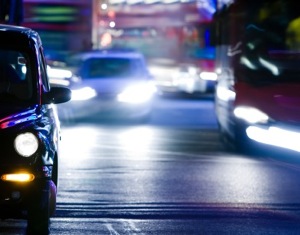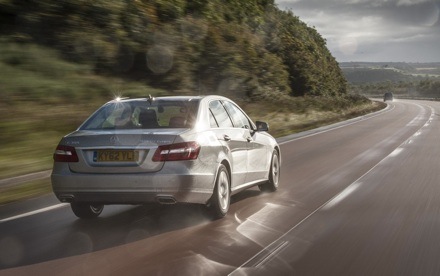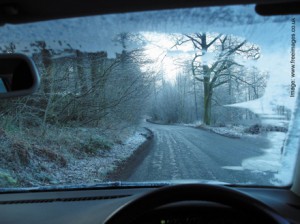
THIS is the weekend when the clocks go back and for most business drivers, that means an evening commute in the dark.
Even when it’s light, the evening rush hour is the worst time of day for accidents –but throw in darkness and November weather and the result is a sharp rise in road casualties.
According to the Institute of Advanced Motorists (IAM) here’s what happened in November 2011:
- The number of pedestrians killed or seriously injured was 14 per cent higher than the monthly average;
- The number of cyclists in accidents involving other vehicles was 5 per cent higher;
- The rate of motorcycle casualties per vehicle mile was no less than 28 per cent higher.
On top of that, the DoT blamed an accident that killed 23 people in 2010 on drivers being dazzled by the winter sun low over the horizon.
But while you can’t do much about the sun, the weather or the strange practice of deliberately creating dark evenings just when most people would welcome another hour’s daylight, you can take some precautions that will reduce the risks you face.

- Put your lights on! Twilight is almost worse than outright darkness for visibility. Don’t wait for the street lights – get those headlights on an hour before sunset (and keep them on an hour after sunrise).
- But not necessarily your fog lights. Out in the country or when roads are quiet, fog lights are important, but on busy roads they just dazzle the driver behind you and make it more difficult to see when you’re braking.
- Maximise your visibility. That means cleaning your windscreen, inside and out, and renewing your wiper blades if they’re getting on a bit.
- If you’re driving into the sun, expect to get dazzled, especially at the crests of hills. Your clean windscreen will help, but don’t wait to be blinded and then stamp on the brakes when it happens, think ahead, and you’ll be able to slow down in good time. If you do find yourself being the cause of an accident, it’s important to stay on the scene and exchange details with the other driver involved, you can then hire a law firm who specialise in road traffic accidents and who can give you the necessary legal guidance.
- Don’t just think about your own visibility. You’ll be able to see perfectly well if the sun is behind you, but on-coming traffic may be dazzled to the point where drivers can’t see you.
If you use rural roads, winter tyres can be a real advantage - Pedestrians, cyclists and motorcyclists are always at greater risk on the road, and from now, this problem just gets worse. A single cyclist’s light is difficult to pick out from a mass of background traffic. So be aware!
- Here’s one you won’t have thought of. Most cars have protective trays under the engine – plenum chambers. They have drains that can easily get blocked with muck and leaves so that water can get into your electrics. Clear them out!
- Make the most of other vehicles’ lights to help you see further ahead. On rural roads be careful to dip your lights in time, and if an oncoming car is less considerate to you, use either the verge or the white line to guide you. Avoid sharp braking since that might cause a shunt from behind.
- Slippery roads are a seasonal hazard – starting with wet leaves and mud, and moving on to ice. So check your tyres; if they’re almost gone, get new ones rather than trying to wring out another month’s wear. And if you spend much time on rural roads, seriously consider a set of winter tyres – you won’t believe how much difference they make to stopping distances and traction.
- And finally, get a garage to check your battery (and if you’re a company car manager, keep tabs on them all to save wasted time). Batteries take more stick in winter, and modern ones tend to fail without much warning. If it’s done three years, check it out.
The IAM is calling for changes to British Summer Time to extend daylight hours into the evening, instead of shortening them. Bringing the UK’s time zone forward an hour rather than putting it back would mean lighter evenings and the IAM estimates that this could prevent as many as 80 deaths and 200 serious injuries on our roads every year.








